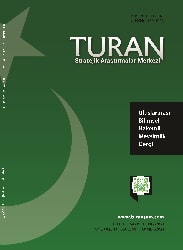TÜRKİYE’NİN ORTADOĞU POLİTİKASI VE 1973 ARAP-İSRAİL SAVAŞI ÖNCESİ ORTADOĞU’DA YAŞANAN GELİŞMELER
TURKEY'S MIDDLE EAST POLICY AND DEVELOPMENTS IN THE MIDDLE EAST BEFORE THE 1973 ARAB-ISRAEL WAR
Author(s): Safa AkyolSubject(s): Political history, International relations/trade, Post-War period (1950 - 1989), Geopolitics, Peace and Conflict Studies
Published by: Sage Yayınları
Keywords: UAR; Islam Summit Conference; Justice Party; Syria Revolution; USSR; Black September;
Summary/Abstract: The clash environment that became permanent in the Middle East after the Arab Israeli War in 1948, the foundation year of the State of Israel, gained a different character after the 1967 Six-Day War. The Arabs suffered a great defeat against Israel, which gained a great victory by expanding its territory four times in the Six-Day War. In the process leading up to the 1973 Arab Israeli War, the Arabs' constant policy was to withdraw Israel to its pre-1967 borders. Arabs, who brought this issue to the agenda on every platform, could not find a response to their demands. In this study, the developments in the Middle East during the period leading up to the 1973 Arab Israeli war and the Middle East policy followed by Turkey during these developments will be discussed. In addition, the approach of the Western alliance to the Cyprus Issue and the removal of the Jupiter Missiles, and the reasons for Turkey's search for an alternative foreign policy will be addressed. Moreover, the effects of Anwar Sadat, who took over the presidency after the death of Gamal Abdel Nasser in Egypt, and Hafez Assad, who took over the administration with the Syrian Revolution, on the balances in the region will be questioned and final answers will be sought.
Journal: TURAN-SAM
- Issue Year: 13/2021
- Issue No: 51
- Page Range: 327-338
- Page Count: 12
- Language: Turkish

